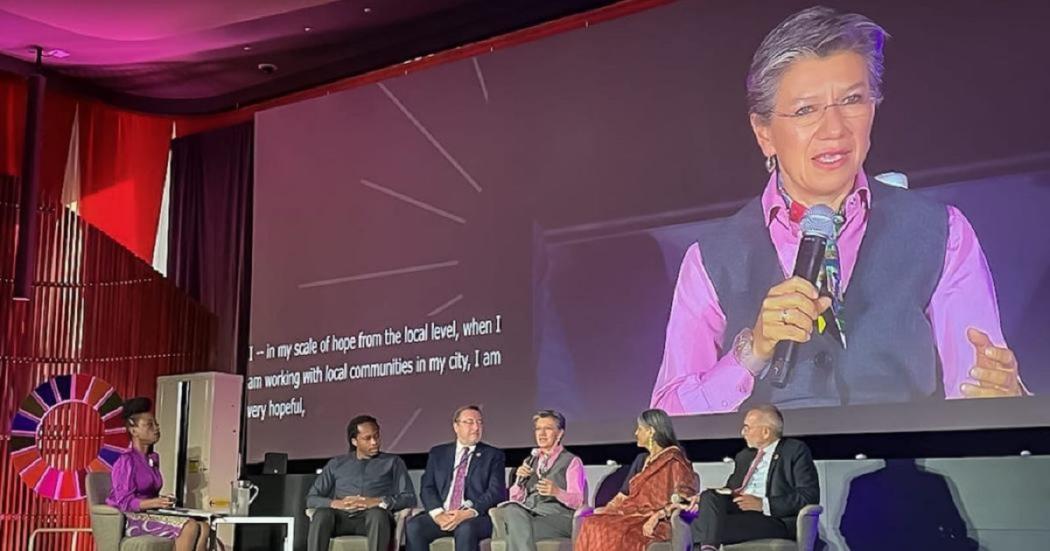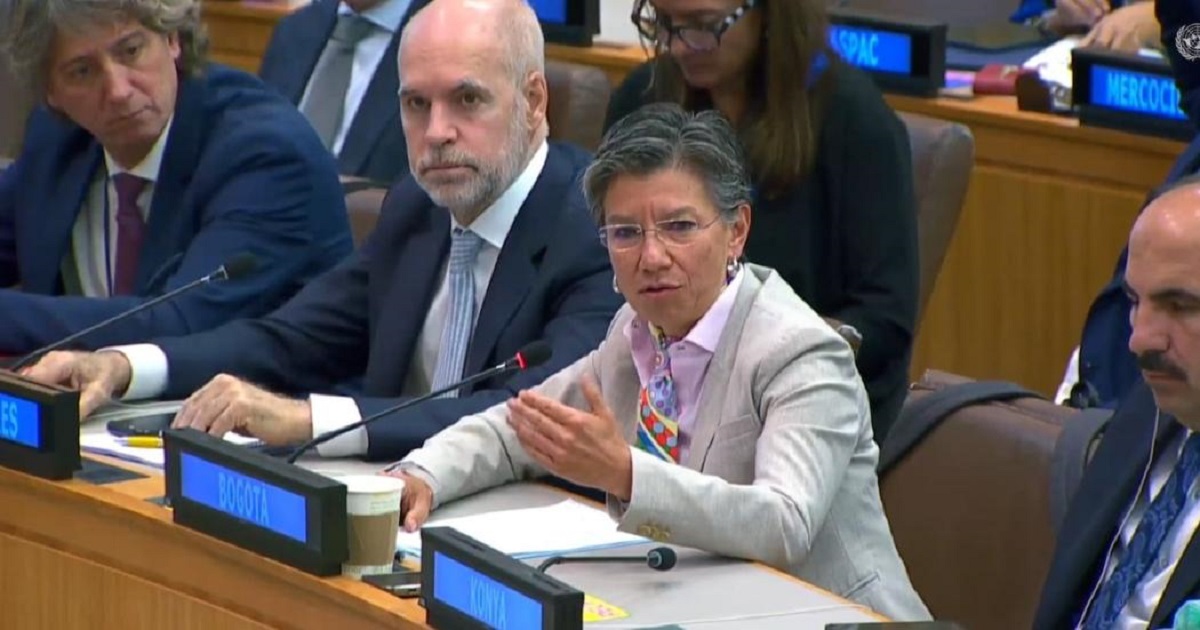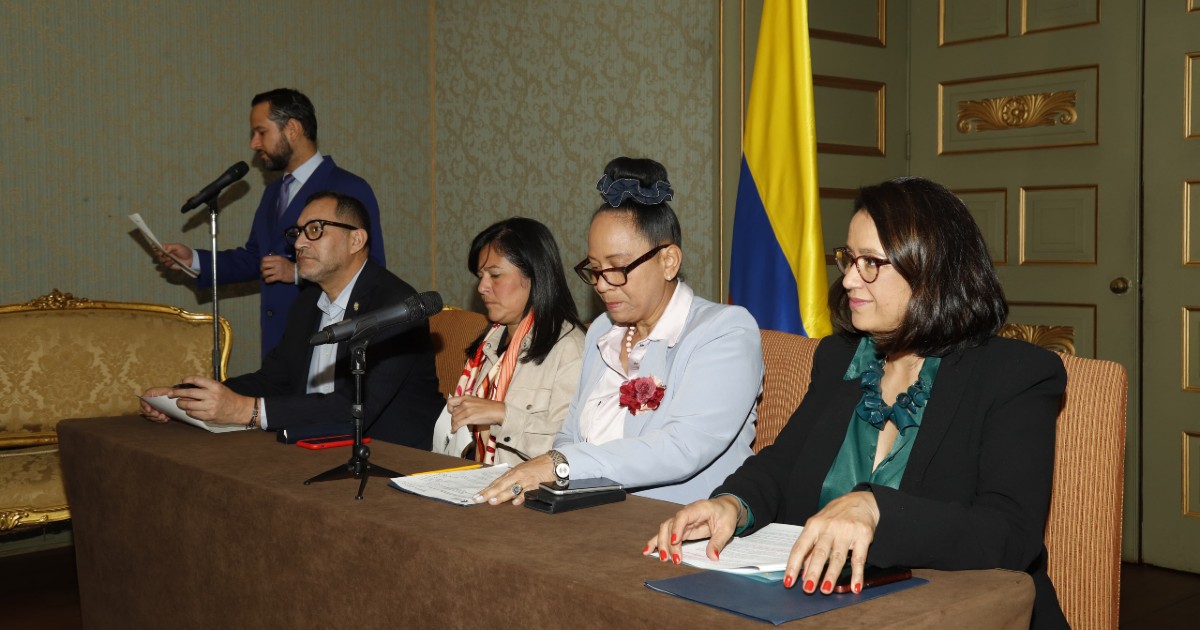This Sunday, during the second day of the "Sustainable Development Goals (SDGs) Action Weekend" convened by the United Nations in New York, Mayor of Bogotá, Claudia López, had a packed agenda. She participated in the opening plenary of the "SDG Acceleration Day," the most significant segment of this event, and a high-level panel.
The opening plenary of the Acceleration Day, titled "Where and Why Is There Hope?" aimed to highlight the significant changes made in many countries to advance progress towards the Sustainable Development Goals (SDGs) and to discuss what more is needed to accelerate significantly between the present and 2030. Alongside Mayor López, participants in this space included the President of Iceland, Guðni Th. Jóhannesson; the Administrator of the United Nations Development Programme, Achim Steiner; and development expert Jayati Gosh.
During the session, it was emphasized that although progress toward the global goals is not as expected, it is still possible to change the course to fulfill them. In her address, Mayor López referred to the importance of taking bold, necessary, and sometimes difficult actions to scale progress and accelerate the implementation of the SDGs in an inclusive and sustainable manner.
In the following post, the Mayor shared a video featuring part of her speech in which she highlighted the services provided by the Care Block System to women in Bogotá:
Para alcanzar los Objetivos de Desarrollo Sostenible, debemos liberar a las mujeres de las labores de cuidado no remuneradas: no podemos excluir de las oportunidades al 50% de la población.
— Claudia López Hernández (@ClaudiaLopez) September 17, 2023
En Bogotá creamos el Sistema Distrital de Manzanas del Cuidado para ofrecer 3 servicios:… pic.twitter.com/a3bEq0Sgsp
In this regard, she referred to Bogotá's major local achievement: the "Caring City," which has the potential to become a global success. "In Bogotá, 52% of the population consists of women, approximately four and a half million people, and a quarter of them, which is more than one million, are unpaid caregivers. They have sacrificed their time, health, and education to become a form of social security for children, the elderly, people with disabilities, and their families. No one helps them."
According to the Mayor, the care in Bogotá has served as public policy and as a response to multiple crises in recent years. Most importantly, it has been a guiding principle at the heart of urban planning and policies to ensure the well-being of people, the planet, and democracy.
"That's why we were able to use schools, cultural centers, and civic centers to add services directly related to women caregivers so they can wash their families' clothes in a machine instead of doing it by hand for hours on the weekend. We provide them with services, take care of their children, look after the elderly, and support people with disabilities in their families so that we can free up at least six hours a week for these women to finish their studies, find a new job, or start a new business," the mayor added.
According to Mayor Claudia López, under a global and innovative care approach, cities can be designed and built to ensure the right to the city and, consequently, access to a healthy and sustainable environment for all residents.
This involves recognizing and transforming the conventional logic of urban planning and design towards a holistic and multi-sectoral approach that uses care as a cross-cutting and cohesive element that connects gender, housing, mobility, and environmental policies, among others: "It's about globally taxing the information industry, the energy industry, and the financial industry. Do it. Make the decision and take control. We have local solutions; invite us here to make decisions and make things possible," the Mayor concluded.
Later, the Mayor also participated in the Local 2030 Coalition Panel, a platform aimed at mobilizing commitments to support locally-driven actions, as well as highlighting initiatives and solutions for local responses to achieve the 2030 Agenda. There, she referred to "care" not only as an opportunity to transform the way well-being is traditionally approached but also to rethink the relationship with the planet and democracy.
"The key is that within the same infrastructure of the Care Blocks, we offer services of three types: the first one is that we take care of those people that women used to take care of; second, we offer them the opportunity to study or to achieve economic autonomy; and third, it's a cultural transformation service where men can also learn to care," said the Mayor.
Claudia López's agenda in New York ended with a meeting with the Prime Minister of Barbados, Mia Mottley, to exchange experiences on collective action and partnerships on sustainability and social equity issues.








